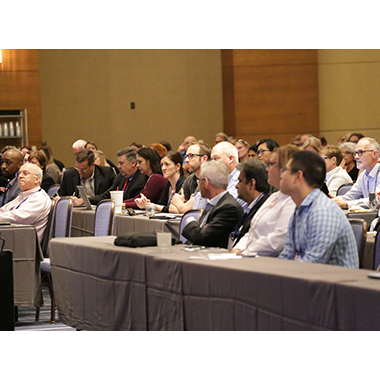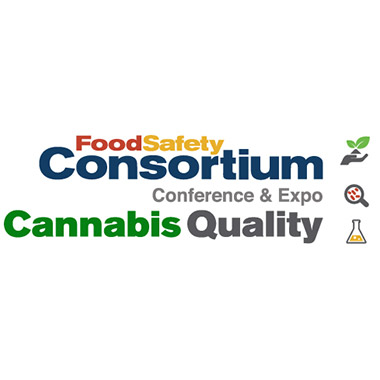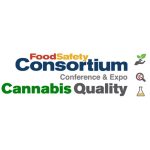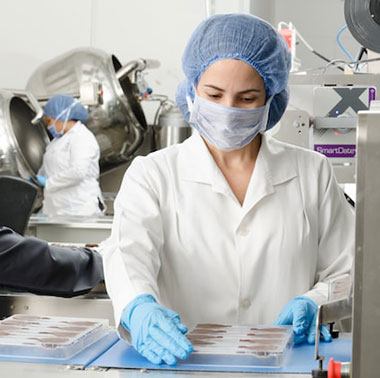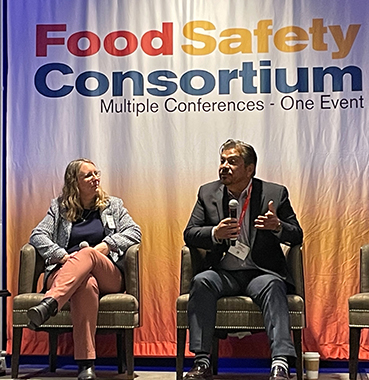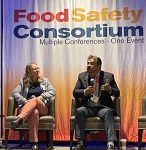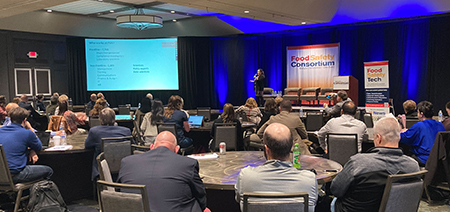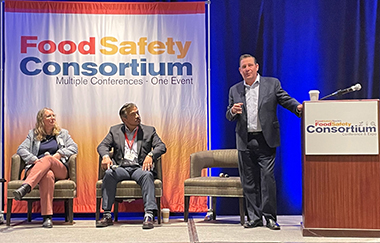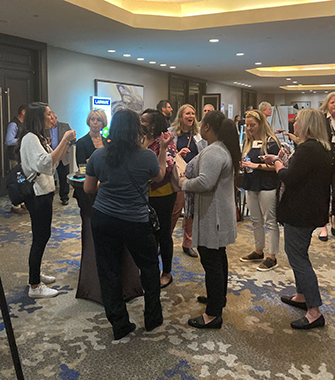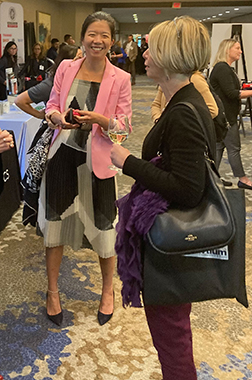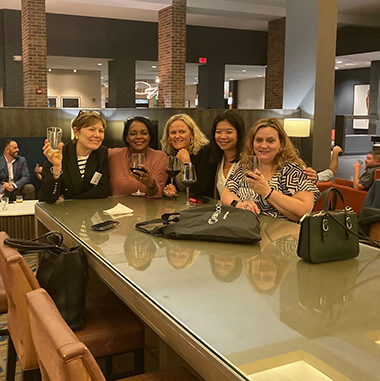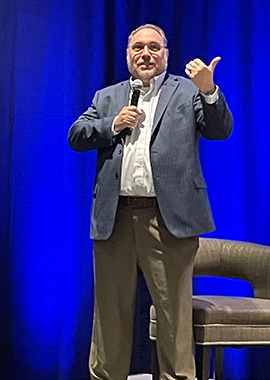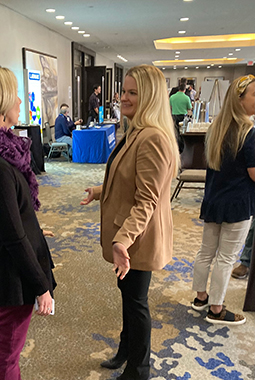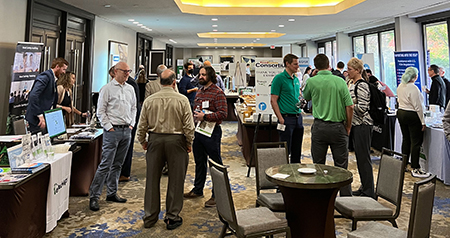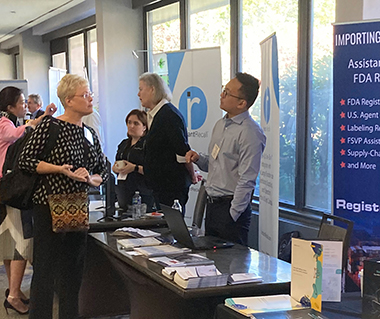Those who work in the food safety and quality industry may know Tami Dumond, microbiologist and Director of Quality Assurance at Omeat, by her oft-changing vibrant hair color. Her career has been equally varied. Dumond has worked as a scrub nurse, QA lab manager and owner, motorcycling instructor and food quality manager and director.
Tami spoke at a recent meeting of the Women in Food Safety about the path that brought her to her current leadership position at Omeat, a tissue engineering company scaling cellular ground beef, and the value of varied work experiences.
I Like To Party
After graduating high school, Dumond entered a one-year hands-on certification program to become a scrub nurse. “It taught me a lot about showing up and the importance of processes and protocols,” she said. “Almost everything I do in food safety and quality brings me back to things I learned in surgery.”
She chose the program because it allowed her to pursue her interest in science without going to college. “I am dyslexic and I didn’t want to go to school anymore,” said Dumond. “I liked school, but it was very hard for me.”
When she became a single mom, she decided to go back to school to earn a Bachelor’s degree, and got a part-time a job at an external quality control laboratory that worked with several food companies, eventually becoming co-owner of the lab. “I learned I was good at managing things,” said Dumond. “I’m a partier and I want to invite everyone to the party. I solidify my teams by including everyone and making sure they always have fun during training.”
Different People Learn in Different Ways
When the economic recession of 2008-2010 hit, rather than cut staff or pay at her lab, she chose to take on the second job as a motorcycling instructor to help make ends meet. “The students would read what they’re supposed to do, hear what they’re supposed to do, watch the instructor and then we watch them,” said Dumond. “That repetition and format of learning—if you didn’t get it verbally, you got it visually—reminded me that different people learn in different ways, so you need to offer information in multiple formats.”
During this time she also joined a local Roller Derby team, “The Soy City Rollers,” as MRSA Nary (mercenary), an experience that brought into focus the joy of being part of a team and, again, the importance of having plans and protocols. “Teams that play well have a playbook,” she said. “If you don’t have a process in place, pull out a whiteboard and write one right away, and do it with your team.”
Time for a Change
After 20 years at the lab and 11 years teaching motorcycling, Dumond—now a microbiologist—decided it was time for a change. She moved to Austin, Texas, with an eye on entering the field of food safety. “I wanted to be more involved in the food industry, because that is where a lot of innovation was taking place,” she said.
She got a job as food quality manager at ATX Specialty Foods, before moving to Omeat. Her goal as Director of Quality Assurance is to empower her team and bring a culture of food safety to the entire organization by making it as easy as possible for people to do the right thing. “I try to empower my teammates and create trust so they know they can come up and talk to me anytime,” she said. “I involve the entire team in training and when anything new is happening. I have made everyone aware of the importance of everything that goes on in the lab. Maintenance team members come to our PCR training so they can better understand the equipment.”
She values the relationships she has built with her teammates throughout her career and stays in contact with many past colleagues and employees. “Even if you leave a company, you don’t leave the people you worked with,” she said. “You never want to burn bridges.”
Sharing Knowledge
Today, Dumond describes herself as a quality scientist who specializes in biological business modeling. In addition to her role at Omeat, she is the founder of Qronika Consulting, which focuses on food safety training and industrial biome investigations. The company is named after a video game character. “Qronika is a titaness of good and evil, who knows you must balance good and bad to move through life,” said Dumond.
In her free time, she volunteers with Texas Food Bank and Food Rescue, as it provides the opportunity to support her community and experience different approaches to how people work with food.
Looking back on her career, she credits her success to always meeting challenges with action. “You have to show up and make the best of the situation,” she said. “And we, as a food industry, need to start paying attention to cellular Ag, and being more high-level in the biological sciences of food safety and quality.”
During the meeting, Tami shared her “Words to Live By”:
I Like to Break Things. If you break things, they can be fixed. If something is wrong, then we’ve got to dismantle it and rework it.
I am Petty. Every quality professional is petty. We worry about the small things.
I Take Things Personally. My life and my career is personal to me
I Party a Lot. I am an entertainer. I am an artist. I try my best to make everyone comfortable in a conversation. With me, you’re going to have a good time and I’m going to figure how to get what I need to get from you in order to make your job better.
I’m a Time Traveler. Everything I’ve done since that first job as a scrub nurse at 18 has brought me back to what I learned when I was 18.
I Steal Things. If a teammate has a good idea, it’s going upfront and I want it. We’re always downloading stuff, incorporating it and making it our own. Don’t waste opportunities or other people’s knowledge.
I Enjoy Being Afraid. Fear means there is an unknown. When we’re afraid, if we can understand that it’s a fear of the unknown then we can learn and become less fearful.




